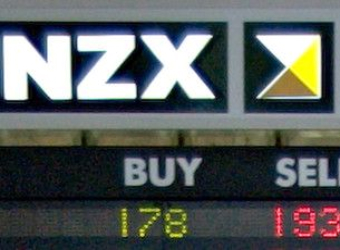NZX Ltd. (NZX) plans to hire five people in Auckland next year, expanding amid record trading volume on New Zealand’s stock exchange and a surge in capital raising.
The operator of the nation’s equity market will have 20 staff in Auckland by the end of 2014 from 15 at present, Chief Executive Officer Tim Bennett said in an interview. The Wellington-based firm had one employee in Auckland 12 months ago. Aaron Jenkins, who begins his role in January as head of markets, is one of five executives hired in the past year to form a 10-member senior management team.
Trading on the NZX on Nov. 26 rose to a record NZ$927 million ($760 million) and the benchmark NZX 50 Index (NZSE50FG) climbed to its highest closing level Nov. 8 as government asset sales, capital raisings and stronger business sentiment boosted investor appetite for stocks. Prime Minister John Key has raised about NZ$3.9 billion selling stakes in power companies and the nation’s airline in a program to fund infrastructure projects and reduce debt.
“This year, we’ve been a bit behind the curve in terms of devoting resources to the capital-markets business,” Bennett said in Auckland yesterday. “We had more listings this year than we expected. Secondly, we’ve seen a lot more offshore investment into the New Zealand market.”
Business confidence in the nation increased in November to the highest level since February 1999, according to a ANZ Bank New Zealand Ltd. report last week.
The government raised about NZ$3.6 billion from the divestment of 48 percent of Mighty River Power Ltd. (MRP) and 49 percent of Meridian Energy Ltd. It also made NZ$365 million from the reduction last month in its Air New Zealand Ltd. stake to 53 percent from 73 percent. Key has slated an offering of Genesis Energy Ltd. shares for next year.
More Listings
“Listing is seen as a terrific way to exit at the moment, or to raise additional capital,” Bennett said. “That hasn’t happened in New Zealand since 2004. So we might as well put the accelerator down on that.”
In 2004, Fisher & Paykel Healthcare Corp Ltd., Feltex Carpets Ltd., Gullivers Travel Group Ltd. and Auckland International Airport Ltd. all sold shares on the New Zealand exchange. That drove a 44 percent increase from the previous year for deals including primary and secondary share sales, according to data compiled by Bloomberg.
New Zealand’s stock market is the fourth-smallest among 16 Asia-Pacific equity markets tracked by Bloomberg, making it less attractive to international investors. With the market capitalization of the benchmark NZX 50 Index just NZ$54 billion, it is only larger than Pakistan, Vietnam and Sri Lanka.
Retirement Savings
In a bid to boost investment in local companies and encourage people to save more for retirement, the government in 2007 introduced a national pension program for all workers. The program, called KiwiSaver, reported it had more than NZ$16 billion invested at the end of March this year.
The NZX 50 Index fell 0.2 percent to 4,783.85 today, after closing at a record 4,951.36 on Nov. 8. That pared its gain to 18 percent this year, compared with a 26 percent surge on the Standard & Poor’s 500 Index and a 13 percent gain on neighboring Australia’s S&P/ASX 200 Index.
NZX, which has its headquarters in the country’s capital, Wellington, currently employs 183 people. Auckland is the nation’s biggest city, home to a third of New Zealand’s 4.5 million people.
Earnings Climb
Earnings at NZX before interest, tax, depreciation and amortization climbed 26 percent to NZ$12.1 million in the first half of this year, the company said Aug. 19. That will increase to NZ$25.5 million for the full year, from NZ$22 million the previous year, according to the average of three analysts surveyed by Bloomberg. NZX shares jumped 2.5 percent today, taking its gain this year to 3.3 percent.
Bennett declined to give forecasts for revenue growth in NZX’s capital-markets business. His firm is looking to start one or two exchange-traded funds next year, most likely for listed property and fixed income, he said.
“What’s really important to us for both a revenue perspective and for market development, is getting more companies listed,” Bennett said. “We have seen both trade value and volume go up this year and we would expect that to continue next year. That’s the flow-on effect of the IPOs we’ve had this year.”
Source: Bloomberg
